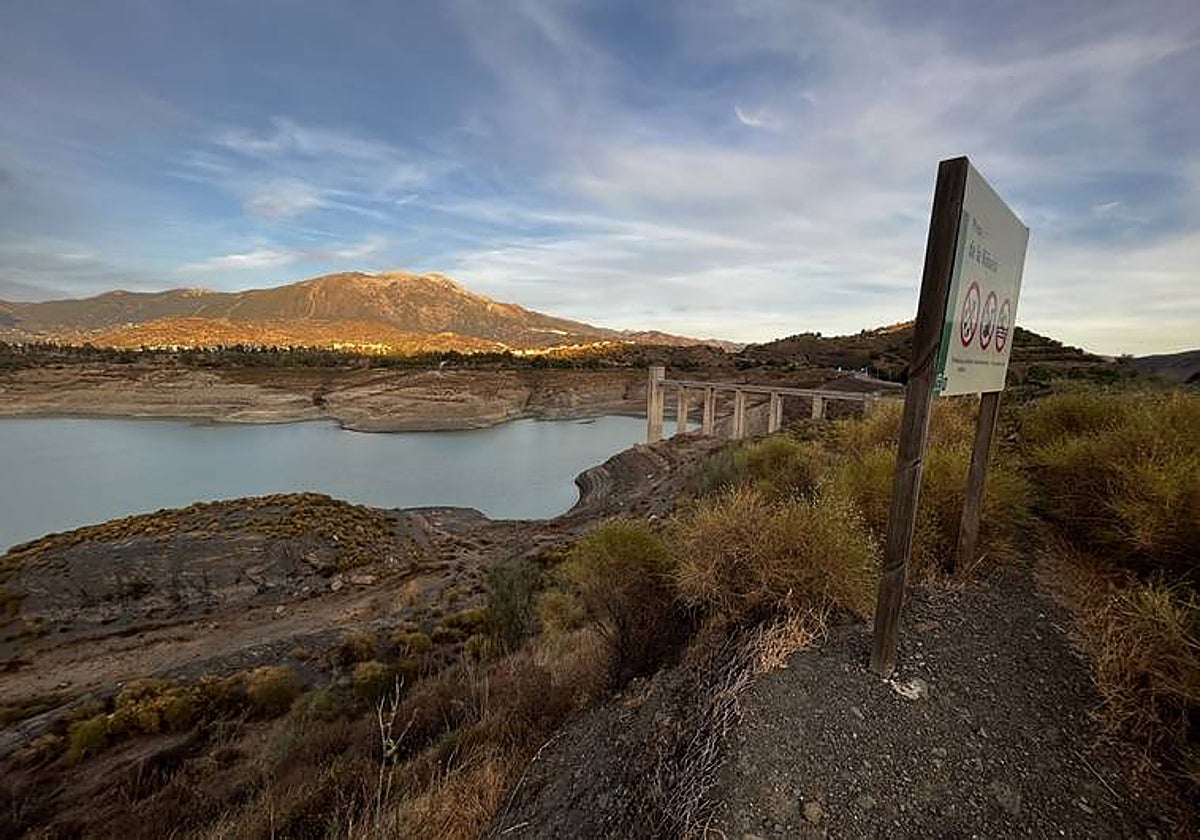Government to take on construction of Axarquía desalination plant
The project is to be declared a matter of general state interest and it is expected to take four years to complete
Viernes, 12 de mayo 2023, 13:18
Spain's central government has announced that it will undertake the construction of a desalination plant in the Axarquía, the area suffering most from the persistent drought affecting the whole of Spain, with La Viñuela reservoir below 10 per cent of its capacity.
The announcement came on Thursday 11 May, as part of a 780-million-euro aid package to help alleviate the effects of the ongoing drought across the country. It was made by the ministers of the departments of agriculture and ecological transition, Luis Planas and Teresa Ribera.
Ribera explained that the project will be declared of general state interest, with a planned public investment of 200 million euros, including improvements to three existing desalination plants in Almeria.
The minister stressed that this is an area of exclusive competence of the Junta de Andalucía, within the Andalusian Mediterranean Basin, but due to the extreme drought situation, the central government has decided to act. She estimated that the desalination plant could be ready for use by 2026 or 2027.
Calls for a desalination plant
The Axarquía’s agricultural sector, and in particular subtropical fruit growers, have been calling for such a solution, especially since their access to water from La Viñuela reservoir has been completely cut off since 1 October 2022.
"We are taking on projects that correspond to other regional authorities that have not been undertaken, and for which the regional administrations in areas particularly affected by the drought, such as Catalonia and Andalucía, have asked us for help," stressed Ribera, at the press conference following the announcement.
Sources at the regional government’s ministry of agriculture and water have told SUR that it has been calling on the central government for some years now both to expand the desalination plant in Marbella and to have the one planned for Axarquía declared to be of general interest to the state, so that it can be financed with public funds.
Reused water
The Council of Ministers has approved a royal decree, at the request of the Ministry for Ecological Transition and the Demographic Challenge (MITECO) and the Ministry of Agriculture, Fisheries and Food, which provides for an investment of 2.19 billion euros to tackle the drought and increase the availability of water resources. Of this amount, MITECO is providing 1.4 billion euros to build new infrastructures, such as desalination plants, one of which will be installed in Malaga province.
MITECO's actions to tackle the drought plan to double the use of reused water by 2027, which currently stands at 10 percent, as explained by Ribera, at the press conference following the extraordinary meeting called by ministers to discuss drought measures.
Ribera also detailed other projects designed by her department that include the reduction of fees and tariffs for affected farms, as well as a fixed price for desalinated water so that farmers can use it at an affordable price.
Among the measures approved, she highlighted the transfer of three cubic hectometres from the Tinto and Odiel rivers to reduce pressure on the aquifers that feed Doñana National Park, particularly in the area around Matalascañas.
General interest
A number of projects on the Mediterranean coast were declared to be of general interest. As such "the central government will assume the construction of desalination plants in Catalonia - a plant in Tordera, at a cost of 220 million -, the aforementioned in Axarquía and Almería - 200 million -, as well as the intensification of reuse in Alicante, with an investment of 224 million" Ribera announced.
This package of measures updates the "reflections" that have motivated the government's work over the last five years in a country that is used to periods of drought, but which is suffering from them with "much greater" frequency and with effects that must be tackled with all the technical capacity that Spain has been developing over the years, since the declaration of the climate emergency.
Ribera indicated that the extraordinary measures approved on Thursday 11 May are short-term and offer "immediate relief" but that they form part of an "anticipation" of measures because "what is happening today is nothing new".
Guaranteeing supply
Of the 1,400 million euros of investments, 35.5 million will be allocated to immediate actions to guarantee water supply this year. "This government wants to support the primary sector and in particular in what depends on the communities and in particular to support irrigators", said Ribera.
The government has also agreed to assume the project to undertake a water transfer in Doñana and supply Matalascañas, with the replacement of the groundwater pumping that supplies the latter with surface water from the Palos drinking water treatment plant – the Río Tinto, Odiel and Piedras basin - as well as the transfer of three cubic hectometres per year.
However, Ribera pointed out that the government will continue to work with the regional governments and user communities to analyse the different drought scenarios in order to improve the "essential" structural response, such as the immediate ones that need to be addressed this summer.
